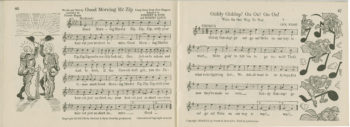
WWI Collections: The Roy Mackenzie Papers
Sometimes faculty papers can hold hidden gems. W. Roy Mackenzie was a professor in the Washington University in the Department of English for 42 years beginning in 1918 and was considered by many to be the greatest authority on Shakespeare in America, but his papers hold more than just academic work. Amid his notes for courses and personal writings, the W. Roy MacKenzie Papers contain documents from WWI, WWII, and the Wash U ROTC. A particularly interesting item is his copy of the pocket-sized Army Song Book from WWI.
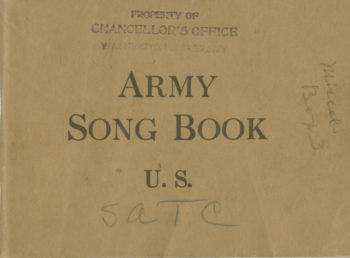
The songbook starts, as one might expect, with the Star Spangled Banner. Although the Star Spangled Banner would not become the official anthem of the United States until a declaration by congress in 1931, the US Navy had made it the official song to be played at the raising of the flag in 1889, and in 1916 Woodrow Wilson ordered that the song be played at all military ceremonies. In the Song Book, the Star Spangled Banner is illustrated with a drawing of a soldier done by John T. McCutcheon, a Pulitzer Prize-winning political cartoonist.
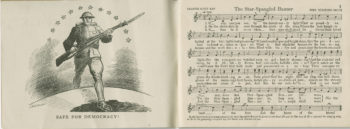
Following the Star Spangled Banner are three songs that were once considered candidates for the official national anthem position: My Country Tis of Thee, Battle Hymn of the Republic, and Columbia Gem of the Ocean.
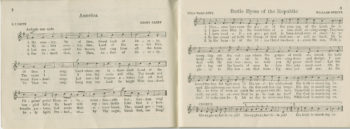
Interestingly, the Song Book also contains the national anthems of America’s allies in the war, including France, England, Italy, and Belgium. The Italian and Belgian anthems are depicted below. Also pictured is the popular war song, “Joan of Arc, They are Calling You,” which was first published in both English and French around the start of the World War I. Joan of Arc was an important figure to French soldiers, and they would often carry her image with them into battle.
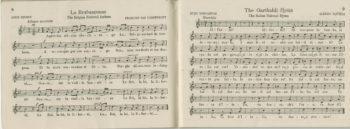
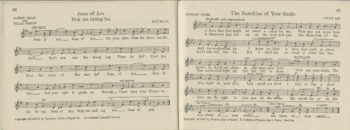
Other songs in the Song Book remind soldiers what they are fighting for with lyrics about their homeland and family, like the following songs “My Old Kentucky Home” and “Dixie.” Interspersed with patriotic songs about the homeland are also a number of religious hymns, like Swing Low Sweet Chariot, Never My God to Thee, and Onward Christian Soldiers, just to name a few.
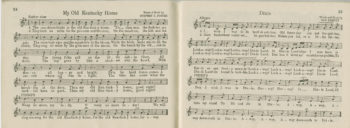
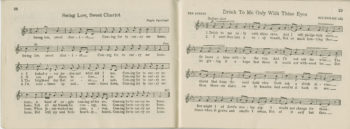
Also included in the songbook are a number of lighthearted tunes for boosting moral, such as the two depicted below. “Good Morning Mr. Zip” was a particularly popular ragtime tune during WWI.
